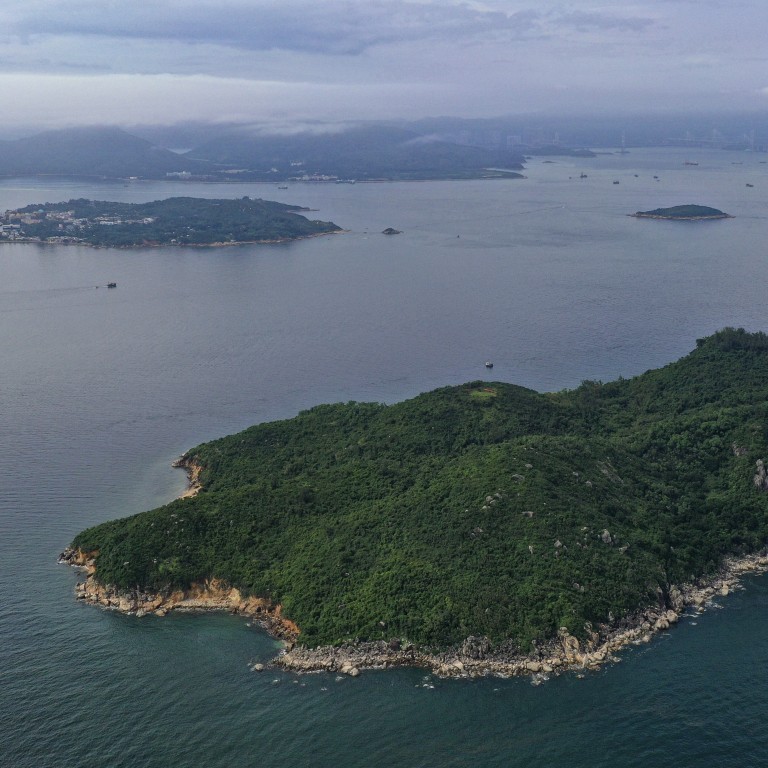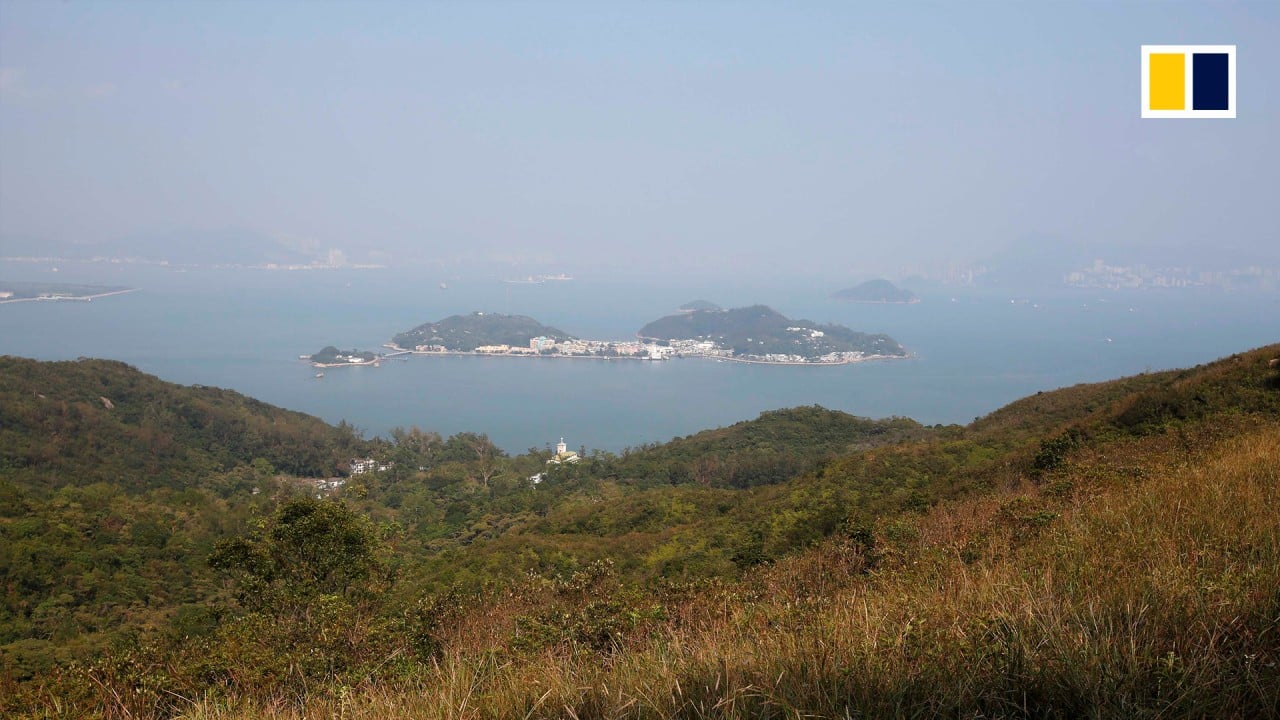
Hong Kong to push ahead with funds plea next week for ambitious Lantau Tomorrow Vision plan for artificial islands
- Chief Executive Carrie Lam’s signature policy would lead to creation of artificial islands covering 1,000 hectares
- Finance Committee expected to debate funding preliminary study next week after lawmakers ran out of time in previous Legislative Council term
Hong Kong’s government is pushing ahead with a controversial plan to build a new metropolis on artificial islands at a cost of hundreds of billions of dollars, and will approach lawmakers next Friday for funding to carry out a preliminary study.
Opposition lawmakers have vowed to use filibustering tactics to block the funding request for the officially named Lantau Tomorrow Vision, Chief Executive Carrie Lam Cheng Yuet-ngor’s signature policy initiative, accusing the government of draining the city’s dwindling public coffers.
Politicians ran out of time to debate the funding request for the preliminary study into the project, which would require massive reclamation off Lantau Island, before the previous Legislative Council term ended in July.
According to the latest agenda for the Finance Committee in the new Legco term – extended for a year after the government postponed September’s elections citing the Covid-19 pandemic – the scheme is listed as the 11th item for its meeting next Friday, below 10 funding applications for the creation of new government posts.

02:43
Why Carrie Lam’s Lantau land reclamation plan is so controversial
The ambitious megaproject is a contentious issue because of concerns about its HK$624 billion (US$80.5 billion) price tag and the potential threat it would pose to the environment and marine wildlife.
Several groups have warned of delays and cost overruns, arguing that better options exist and doubting the need for such a massive undertaking given the city’s ageing population.
Opposition lawmaker Andrew Wan Siu-kin of the Democratic Party expressed disappointment with the government’s push, saying any public funds should go into improving livelihood for citizens suffering from the pandemic.
“The administration is acting like a gambler, and insists on spending on a white elephant project while the city is still hard-hit by the pandemic,” he said, adding that his party had not been consulted by the government before the item was placed back on the agenda.
Civic Party lawmaker Jeremy Tam Man-ho echoed Wan in vowing to prevent any discussion on the funding next Friday.
“There are currently 10 funding applications for the creation of new government posts, and we will certainly have a lot of questions for these posts,” Tam said.
The government is seeking an initial HK$550.4 million for a three-year consultancy study that would involve site evaluation around Kau Yi Chau and examine transport infrastructure needs.
That will be followed by urban planning, an environmental evaluation and further consultation before starting reclamation work, which may be as early as in 2026 or 2027.
Pro-establishment lawmaker Edward Lau Kwok-fan, of the Democratic Alliance for the Betterment and Progress of Hong Kong, said the project should not be postponed because of the need to find more land for housing, with the short-term supply running out.
“But the government should inform the public that this is just a preliminary study, and it will find ways to fund the project,” he said.
Hong Kong property tycoon says local leadership to blame for land issues
Cheng Yiu-tong, honorary president of the Beijing-friendly Federation of Trade Unions, said the Lantau project could take more than a decade to supply any land, as it was so contentious.
Instead, he said, he had proposed to the central government earlier that land could be leased in some Greater Bay Area mainland Chinese cities for creating new satellite towns for Hong Kong. The feedback was “positive”, he added.
Financial Secretary Paul Chan Mo-po last month said the Lantau project should proceed despite the city’s fiscal reserve dropping from HK$1.1 trillion in March to about HK$800 billion in August this year – the equivalent of 12 to 13 months of government spending – as it would contribute to the city’s long-term development.
To make up for the shortfall, development secretary Michael Wong Wai-lun said last week on social media that the government would explore various financing options, and would not rule out public-private cooperation.
Wong cited the model used for part of the Sha Tin New Town project in the 1970s, in which developers paid for a 56-hectare parcel of land and were responsible for its creation by reclamation. Developers were ultimately allowed to keep 30 per cent of the site to build private homes, and handed over the rest for public housing.
“Another model is the rail plus property model, which is often used in Hong Kong. Through granting the property development rights to developers, they have to build and run [the railway and properties] without using public funds,” he noted.
Meanwhile, Legco House Committee chairwoman Starry Lee Wai-king said the Transport and Housing Bureau would withdraw two government bills that could not be scrutinised before the original legislative term ended in July.
The bills, on charging developers a vacancy tax for unsold new flats and measures establishing a new class of premium taxis, would not be revived in this extended term, she said.
While some legislators expressed reservations, lawmaker Abraham Shek from the real estate and construction sector supported the decision. “We should seize the time to focus on livelihood issues such as Lantau Tomorrow.” he said. “Don’t do unnecessary work.”

